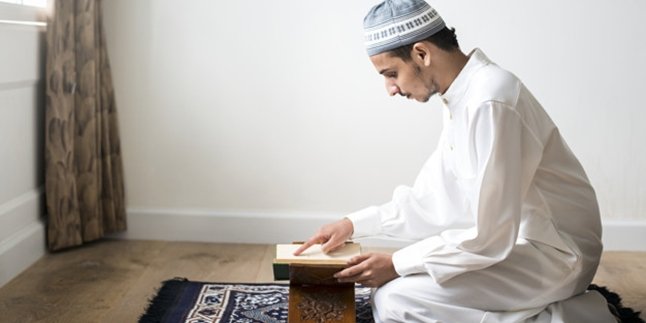Kapanlagi.com - Takziah is a familiar activity for Muslims in Indonesia. This activity is done for those who visit the house of the bereaved. But, what is the meaning of takziah as mentioned? Or does takziah have another meaning.
In addition to knowing that takziah means visiting the house of the bereaved, this article also discusses the laws and good etiquette to follow when doing takziah to someone's place who is grieving.
Therefore, according to various sources, here is the meaning of takziah, along with the laws and etiquette to follow. Let's check it out KLovers.
1. Understanding Takziah

Illustration (credit: Pexels)
As is known, the meaning of condolences is to visit someone's house who is grieving to give strength to the family left behind and to give prayers for those who have returned to Allah SWT. According to Kemenag Banjarnegara, as quoted by Abdul Aziz Dahlan (2006:1769), the meaning of condolences comes from the word 'azza-yu'azzi-ta'ziah, which means to comfort and spread.
In this case, the meaning of condolences is to spread the people left behind by the deceased family by telling things that can comfort and alleviate their sadness. Meanwhile, according to terminology, condolences are to encourage patience, make the family of the deceased comfortable, and be patient with something that can alleviate the calamity they receive (Abu Bakar Jabir, 2003:391).
Condolences are usually done by visiting the house of the deceased and strengthening the hearts and comforting the people left behind. As in a hadith, a daughter was asked by someone to meet the Prophet and convey that the person's son had passed away, and hoped that he would come. The Prophet Muhammad SAW then sent someone to convey greetings and say:
"Indeed, Allah has the right to take what He takes, and what He gives belongs to Him, and everything has a certain time with Him. So be patient and keep (the reward of your patience) with Allah." (HR.Bukhari).
So condolences are a good activity that can be done by Muslims. Whether it is giving an expression to make someone who has been left behind feel calm or to offer prayers for those who have returned to Allah SWT.
2. The Law of Takziah

Illustration (credit: Pexels)
What about the law of condolences? Yes, does condolences itself have a law in Islam? It turns out that the law of offering condolences in the Islamic religion is sunnah, KLovers. This is good for men and women, children and adults. The legal basis for this statement is, among others, the hadith of the Prophet Muhammad SAW narrated by Imam Ibn Majah and Iman al-Baihaki:
"No believer offers condolences to his brother who experiences a calamity except that Allah SWT will dress him in a robe of honor on the Day of Judgment."
From the above hadith, we can see that the Prophet Muhammad SAW gave an expression that can make the hearts of the family left behind feel good. This also becomes a form of comfort for those who are left behind. The scholars also express that, although offering condolences is sunnah, it will be good if done.
3. Condolence Etiquette

Illustration (credit: Pexels)
After knowing that the meaning of condolences is to visit and comfort someone who has been left behind. However, condolences have some etiquette that you need to understand as a Muslim. Imam Al Ghazali also explained four etiquettes of people offering condolences as follows:
"The etiquette of offering condolences is to avoid as much as possible things that are inappropriate or taboo, show a sense of grief, not talk too much, and not smile excessively because it can cause dislike."
In addition, there are several other etiquettes that you can do. Here are some etiquettes of condolences that you need to know:
1. Wear decent and simple clothing. Preferably dark and not flashy.
2. Express condolences and pray for the goodness and forgiveness of the deceased and their family.
3. Avoiding taboo things, for example, doing things that are excessive and can harm the grieving family.
4. Avoiding conversations that make the family of the deceased sad. For example, gossiping about the bad things that may be a form of slander.
5. Showing deep grief. This can show that we have empathy.
6. Do not joke or laugh out loud when offering condolences, as it shows that we do not have grief.
7. Do not talk too much in a grieving atmosphere. Simply increase prayers for someone who has passed away to Allah SWT.
8. Participate in funeral prayers and accompany the deceased to the grave to facilitate the return process of the deceased.
9. Bring food or drinks for the family left behind. This can make it easier for the bereaved family.
10. Do not speak ill or expose the faults of the deceased or their family. Because, this is also not good for us.
That is the meaning of condolences, which is to visit to be a comfort to someone who has been left behind. Not only knowing the meaning of condolences, KLovers can also know the law of condolences and the etiquette in performing good condolences activities.
(kpl/gen/dhm)
Disclaimer: This translation from Bahasa Indonesia to English has been generated by Artificial Intelligence.















